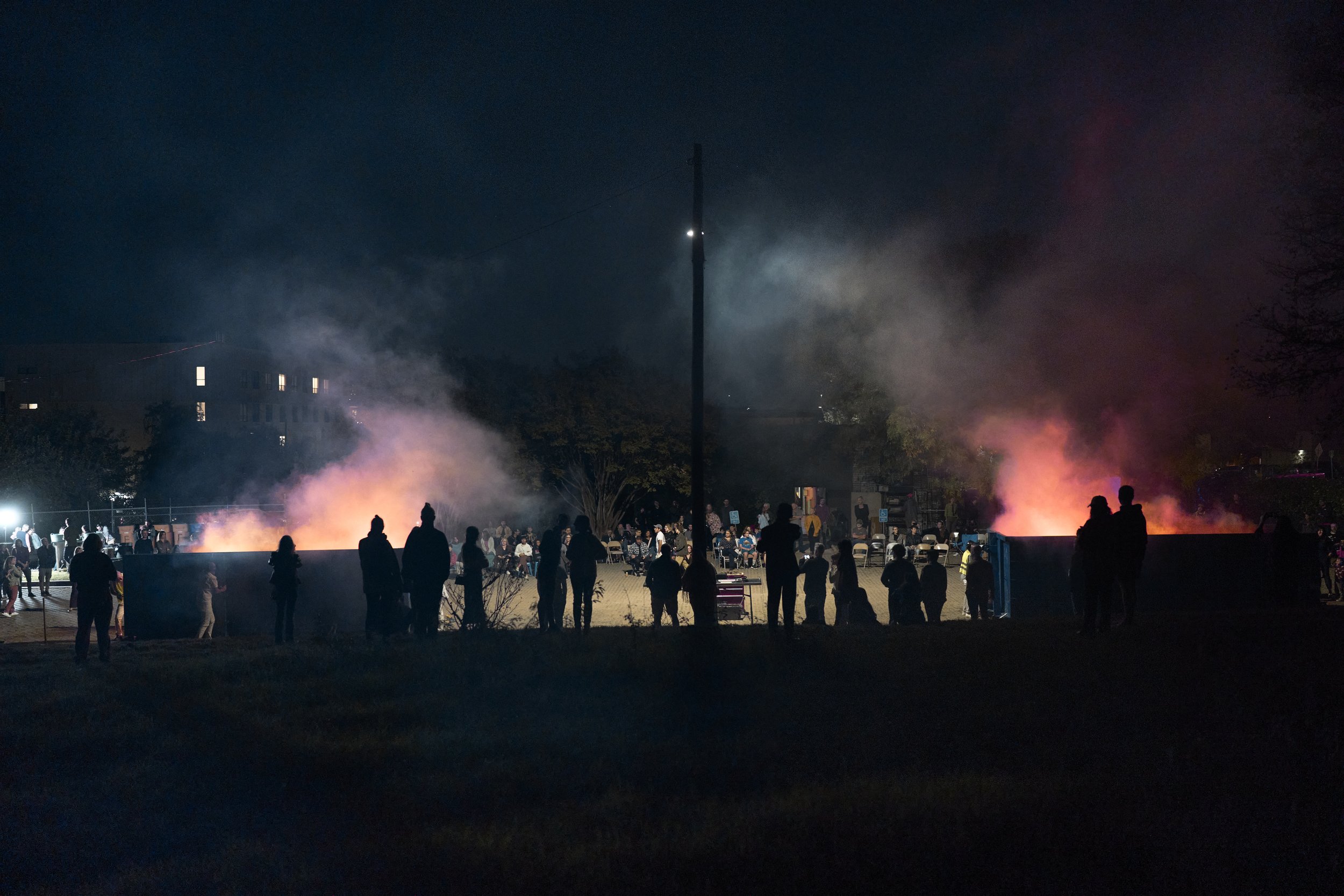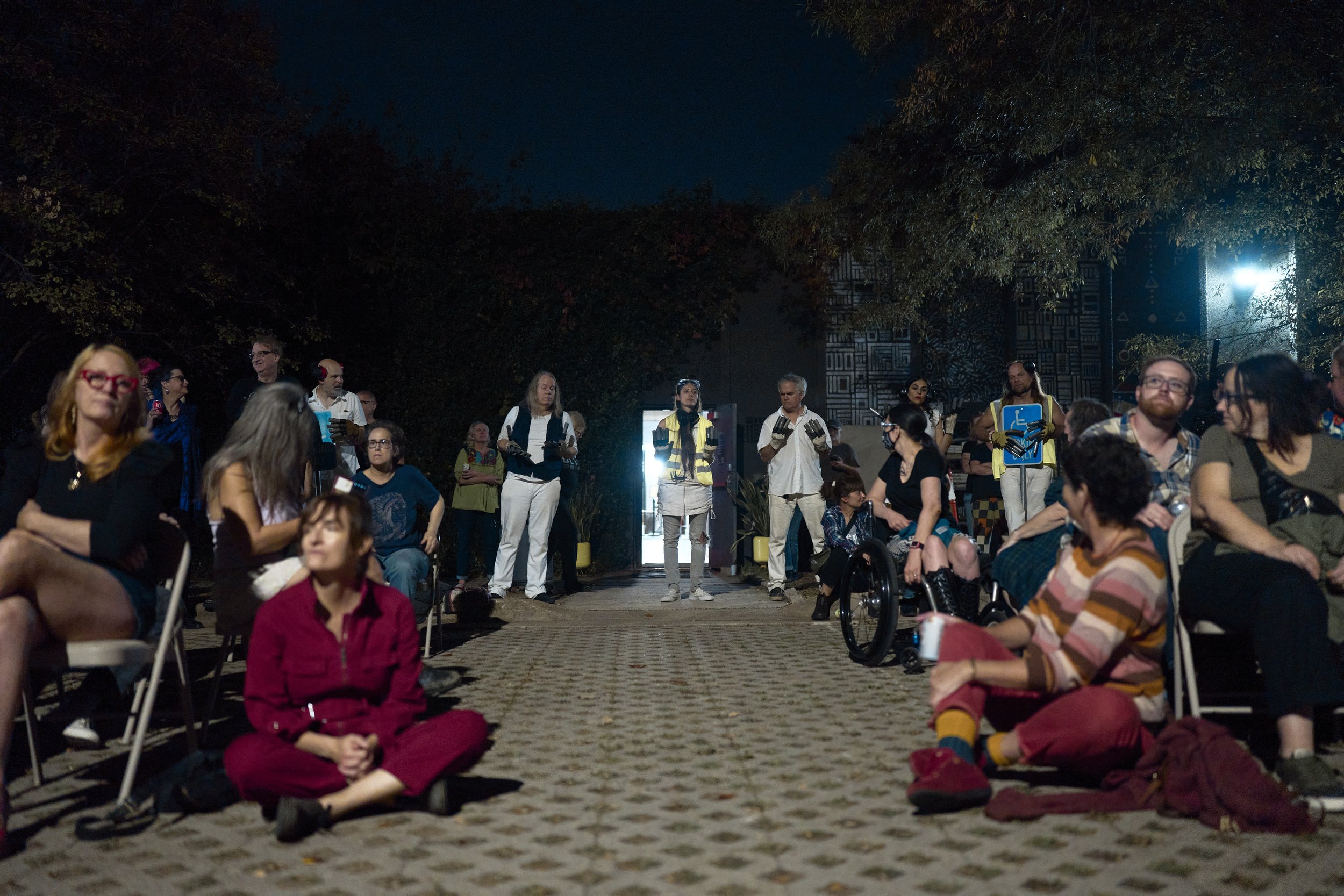
DUMPSTER FIRE
02
an immersive percussion ensemble performed on two dumpsters by humans and robots, with a power group of Austin-based percussionists
Dumpster Fire 2 was performed by: Lisa Cameron, Jeffrey King Coffey, Kyle Evans, Peggy Ghorbani, Lyman Hardy, Thor Harris, Jeff Hoskins, Alton Jenkins, Lacey Lewis, and Thom Washburn.
The event was produced by Barna Kantor and Kyle Evans
Experiential art collective Rolling Ryot reinstalls their 2020 work Dumpster Fire with four performances at the dadaLab space in East Austin on November 5th and 6th (Saturday-Sunday). A gut-wrenching, visceral experience that is part outdoor installation and part concert, Dumpster Fire is a 45-minute sonic spectacle that features multi-instrumentalist percussion wizards Austin has ever seen: Lisa Cameron, Jeffrey King Coffey, Kyle Evans, Peggy Ghorbani, Alton Jenkins, Lyman Hardy, Thor Harris, Jeff Hoskins, Lacy Lewis and Thom Washburn
Using an arsenal of modified and handmade instruments, the percussionists articulate assorted aural textures by tapping, striking, scratching, and slamming their implements against the resonant metal bodies of dumpsters. Their urgent and timely score produces moments of hypnotic call-and-response that move effortlessly from synchronicity to chaotic cacophony. This is music with the power of dynamite.
Staged between the massive dumpsters, sound and light artist Kyle Evans paint a smoldering backdrop of tension and release as he triggers pre-programmed, robotic percussion elements that help carry the performance and facilitate the dialog between the percussionists. Their foundation of stark, emotive lighting is augmented by a number of visual cues and surprises that move the piece forward in exciting ways.
Years in development, the work stems from the Ryots’ experimentation with large commercial roll-off dumpsters as musical instruments. In this case, they have doubled them up to create a larger sound field and to use their resonant low-frequencies to provoke a truly palpable reaction.
Thematically, Dumpster Fire speaks to the current ungovernability of our country. The piece is a direct response to the nearly irreparable harm the creative ecosystem has suffered after CoVid. Economic devastation notwithstanding, artists have been robbed of the vital exchange of ideas that actual venues and live audiences provide. And while there is much work to be done, there is a light – perhaps even, a beautiful conflagration – at the end of this tunnel.
“This work is a unique way to create big, unamplified sound while holding onto the belief that despite the circumstances, we can (and must) continue to create meaningful work,” says Barna Kantor, co-founder of Rolling Ryot. “Now more than ever, we must push artistic limits and the limits of our audiences as we create new opportunities for live performance to thrive and to connect.”












